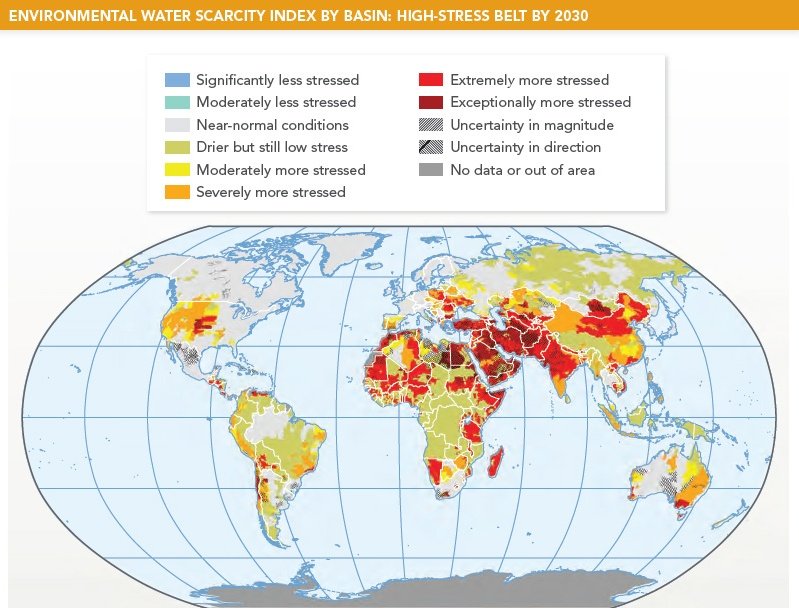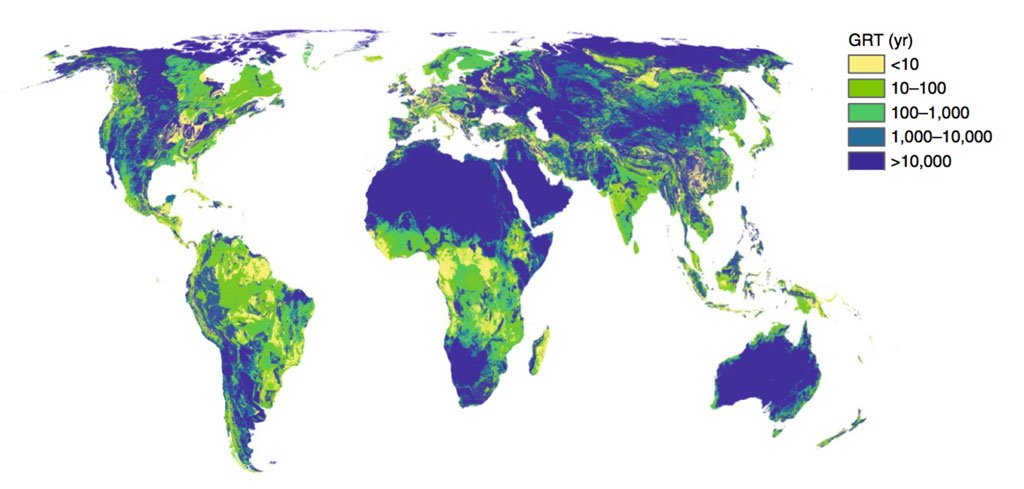The world’s largest sources of freshwater will be severely depleted by 2029, with catastrophic consequences for all of humanity.
[THREAD]
[THREAD]

Timebomb:
Regions most sensitive to changes in climate include humid and wet areas, such as the Amazon, Indonesia and parts of central Africa. In some of these areas, it could take *less* than 10 years for climate change to fully impact groundwater flows.
carbonbrief.org/climate-change…
Regions most sensitive to changes in climate include humid and wet areas, such as the Amazon, Indonesia and parts of central Africa. In some of these areas, it could take *less* than 10 years for climate change to fully impact groundwater flows.
carbonbrief.org/climate-change…
Groundwater response times:
The map below:
Yellow shows areas where groundwater is likely to fully respond to stresses in under 10 years. ⚠️
Light green shows where the response time is 10-100 years.
Dark green & blue: 100 to over 10,000 years.
Also👇

The map below:
Yellow shows areas where groundwater is likely to fully respond to stresses in under 10 years. ⚠️
Light green shows where the response time is 10-100 years.
Dark green & blue: 100 to over 10,000 years.
Also👇
https://twitter.com/ClimateBen/status/1161725356941959175?s=19

Areas with the shortest groundwater response times include wet, humid regions: the Amazon, the Congo Basin, Indonesia, and low-lying regions, such as the Asian mega-deltas and the Florida Everglades.
2 billion living with absolute water scarcity by 2025👇
2 billion living with absolute water scarcity by 2025👇
https://twitter.com/ClimateBen/status/1141345680268648449?s=19
Finite:
The water that supplies aquifers and wells for billions of people is mostly a non-renewable resource that could run out in many places.
Just 6% of the groundwater around the world is replenished and renewed within a "human lifetime" of 50 years.cbc.ca/news/technolog…
The water that supplies aquifers and wells for billions of people is mostly a non-renewable resource that could run out in many places.
Just 6% of the groundwater around the world is replenished and renewed within a "human lifetime" of 50 years.cbc.ca/news/technolog…
Today, nearly three and a half billion people struggle with severe water scarcity for 3 months of the year.
The #EcologicalEmergency is right now, and has been going on for decades. Time for meaningful international solidarity - that means system change.
The #EcologicalEmergency is right now, and has been going on for decades. Time for meaningful international solidarity - that means system change.
https://twitter.com/ClimateBen/status/1158141292058238978?s=19
Most over-stressed is the Arabian Aquifer System, which supplies water to 60 million people in Saudi Arabia & Yemen; the Indus Basin aquifer in northwest India & Pakistan is the second-most threatened; the Murzuk-Djado Basin in northern Africa the third. nationalgeographic.com/news/2016/07/w…
Today:
🔺1.9 billion people live in countries facing extremely high water stress
e.g India, Pakistan, Iran, Libya, Saudi Arabia, Israel, Qatar, Bahrain, UAE
🔺Another 2.5 billion people face high levels of water stress
🔺1.9 billion people live in countries facing extremely high water stress
e.g India, Pakistan, Iran, Libya, Saudi Arabia, Israel, Qatar, Bahrain, UAE
🔺Another 2.5 billion people face high levels of water stress

The likelihood of conflict:
'most regions of the world face significant hydropolitical vulnerabilities that, in a number of hot-spot basins, may turn into serious water conflict in the decades to come'
The rapid pace of climate breakdown is a key threat.link.springer.com/chapter/10.100…
'most regions of the world face significant hydropolitical vulnerabilities that, in a number of hot-spot basins, may turn into serious water conflict in the decades to come'
The rapid pace of climate breakdown is a key threat.link.springer.com/chapter/10.100…

• • •
Missing some Tweet in this thread? You can try to
force a refresh





